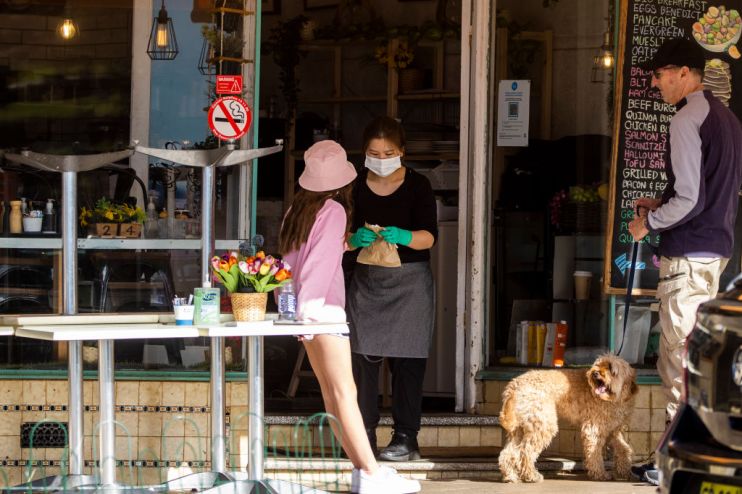PMI: Pingdemic crimps UK services industry

The “pingdemic” has hit activity in the UK services industry as firms struggle to ramp up supply to cope with soaring demand due to severe worker shortages, according to a closely watched survey released today.
The latest IHS Markit / CIPS purchasing managers’ index for the UK services industry dropped to 59.6 in July, down from 62.4 in the previous month, and the lowest reading since March.
Read more: PMIs: Eurozone business activity soars to 15-year high
The reading suggests services growth is still robust, but is slowing. A reading above 50 indicates businesses reported an expansion in activity.
A reduction in the number of available workers due to staff being told to self-isolate after coming into contact with someone who tested positive for Covid by the NHS Covid-19 app or by a Track and Trace official contributed to services firms curbing production.
“Many service providers commented on staff shortages due to COVID-19 isolation rules”, IHS Markit said.
Self-isolation rates have been particularly concentrated among restaurants and pubs due to the high levels of social and face-to-face contact employees in this sector are exposed to.
Tim Moore, economics director at IHS Markit, said: “More businesses are experiencing growth constraints from supply shortages of labour and materials, while on the demand side we’ve already seen the peak phase of pent up consumer spending.”
Read more: Covid app update ‘pretty pathetic’, says boss of Mr Fogg’s amid pingdemic staff shortages
Michael Hewson, chief market analyst at CMC Markets UK, said: “One reason for the fall in UK services activity… is a direct consequence of the so called “pingdemic”, which hampered the economic activity of employees who were self-isolating.”
Cost pressures rise to record high
UK services businesses are having to absorb higher costs throughout their supply chain due to severe supply and demand mismatches, the survey shows.
IHS Markit’s PMI shows the cost of securing inputs rose at its fastest pace since the firm started collecting data 25 years ago.
As a result, services businesses may be holding off on buying materials until inflationary pressures ease. Some may also be unable to absorb higher costs amid heavier debt burdens or lower income levels engineered by the Covid crisis.
The biggest contributors to higher production costs were soaring fuel prices and higher wages, the survey said.
However, some sectors of the services industry are capitalising on a strong rebound in consumer spending that has lasted since the lifting of Covid curbs in early April by raising prices.
Analysts at UBS Asset Management think some firms are able to pass on higher prices with no impact on demand, indicating spending from households and businesses will stay strong in the long run.
“Others are unwilling to fully pass higher input costs on to customers, so margins suffer,” which means services firms may have to enact price increases to offset greater financial strain from input inflation.
Latest data from the Office for National Statistics shows CPI inflation is runining at 2.5 per cent annually in June, higher than the Bank of England’s two per cent target.
The Bank will release its latest round of inflation estimates tomorrow as part of the monetary policy committee’s announcements. Experts expect rates to remain unchanged at 0.1 per cent.
Read more: Bank of England’s MPC meeting: Who will take Haldane’s hawkish reins?
Signs demand is cooling
New business orders slowed in July to their lowest levels since February, suggesting the initial bounce triggered by the Covid unlocking is running out of steam.
Martin Beck, senior economic adviser to the EY Item Club, said: “The pace of activity growth has continued to slow, which is likely to reflect the notion that the biggest gains from reopening are now behind us.”